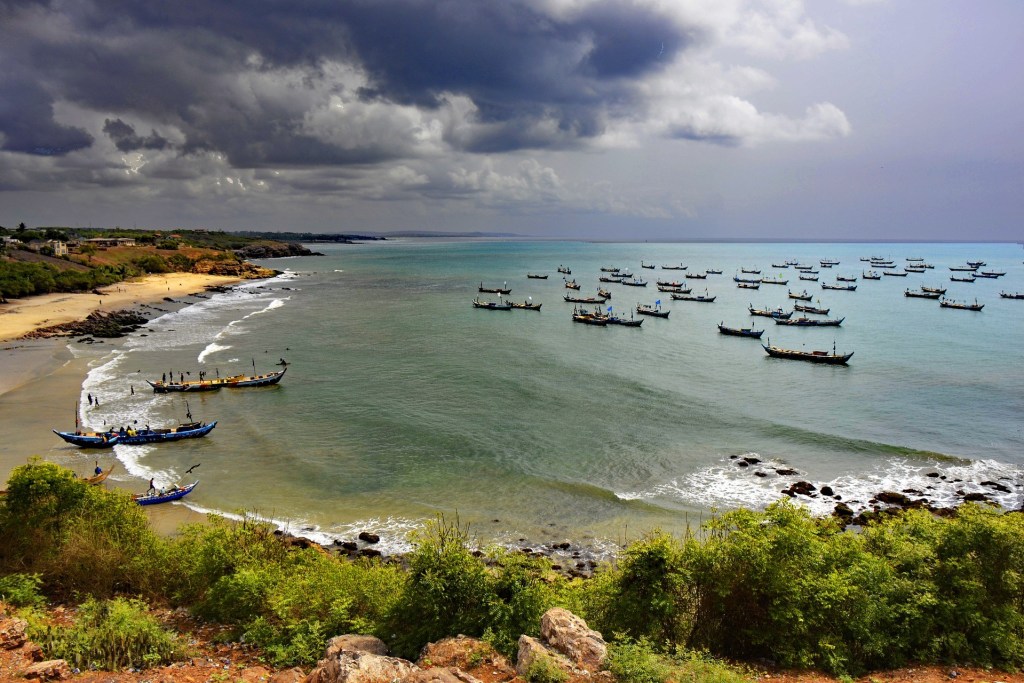
This originally appeared in the Africa section on Moguldom.com
It’s a new decade but old tricks die hard. Imitation is a manifestation of admiration. A “2020 Door of Return” ad circulating on social media was declared a fake.
Many people said that Nigeria was copying Ghana after an ad circulating on social media suggested Nigeria was launching a 2020 campaign to attract Africans in the diaspora back to the country. The Nigerian government and the Nigerian Diaspora Commission declared the ad a fake.
Although a fake, the campaign highlights an opportunity for several countries.
Here are four African countries that could benefit from a “Year Of Return”-type campaign.
Kenya
Kenya may be a microcosm of Africa. The country is home to one of Africa’s burgeoning financial districts and vibrant entrepreneurial hubs in Nairobi as well as playing host to more than 50 national parks and reserves. A major focus of Kenya Vision 2030 is to attract more foreign investors into the country as part of the process to diversify the economy. Its efforts have been buoyed by the combined arrival of expats and diaspora entrepreneurs as well as the development of local entrepreneurs. The high level of interest in the entrepreneurial space has led to the creation of numerous tech hubs in the country, including m-Lab, FabLab, Nailab and iHub (recently acquired by Nigeria’s CcHub). Investors, including private equity funds, continue to pour money into the country, helping Kenya remain one of the fastest growing economies in Africa.
If you are not going for the major city excitement and financial buzz, the country is top-notch for national parks and safaris. The best-known natural adventure in Africa may be the annual migration (between July and October) of 1.5 million wildebeest and the accompanying escort of zebra, antelope and predators across Masai Mara in Kenya. The Maasai tribesmen also provide cultural tours to heighten the experience. You can also visit Lake Nakuru National Park to see the flocks of flamingos or Amboseli National Park with a view of Mount Kilimanjaro in Tanzania.
South Africa
As Africa’s second largest economy, South Africa remains a business hub for Africa despite all the rumors and rumblings about its downfall. If Moody’s downgrades South African debt from investment grade, a lot will change, especially business-hub status. S&P and Fitch lowered their ratings on South African debt to junk in 2017. Junk bond status will ultimately lead to the exit of many investors and a significant amount of capital from the country. That said, this could be the opportunity for the country to redo the rules of engagement for the business community and overall financial sector and engage the global markets with a different mindset. The “Year of Anything”, as one investor described it, would be better than the status quo.
Furthermore, if South Africa can avoid the financial potholes in 2020, it has all the natural beauty that could excite the diaspora and non-diaspora. Visit the historical Robben Island to see where Nelson Mandela was held for years before becoming president of the “Rainbow Nation.” Visit Kruger National Park to see the “big five” aka buffaloes, elephants, leopards, lions and rhinos. Visit Cape Town and drive Chapman’s Peak Drive, hike Lion’s Head, and dive to see the great white sharks. At the end of the day, you can trace history and find adventure all-in-one while in South Africa. Even when you think you have seen it all, you will have friends mention hidden gems that you did not have on your list.
Ethiopia
Ethiopia has always been a tourist attraction with its history and beauty. Lalibela, for example, is a medieval settlement that was designed as a second-coming of Jerusalem. The city is home to 11 churches, all built by King Lalibela as early as the 12th century, with the most famous being St. George’s Cathedral. There is the Rift Valley and its chain of seven lakes with majestic hot springs and wildlife sprinkled throughout these beautiful bodies of water. The country is also home to Gondar, where King Fasil (Fasiledes) built regal castles in the 1600s. Gondar is a UNESCO World Heritage Site with great hotels mixed within a walkable complex.
Ethiopia also, simply put, is a major emerging economy today, quickly gaining ground on Kenya and bigger than some better-known economies such as Ghana, Tanzania, and Cote d’Ivoire. The National Bank of Ethiopia projected double-digit growth for 2020 at 10.8 percent compared to less than 6 percent in Kenya. The country is planning to privatize its national telecom company and offer licenses to anxious multinational telecoms hungry to access Ethiopia’s large population (around 115 million).
Ethio telecom aka the Ethiopian Telecommunications Corporation has a customer base of approximately 50-to-60 million (depending on the overlap of voice and data customers). With a population of 107 million, there is a big untapped opportunity. Talks to privatize other sectors including aviation, energy, and logistics, has investors salivating such that a “Year of Return” would probably be an easy campaign. Plus, the music, food, and culture of Ethiopia sprinkled with its exciting night life will fit well with any age group and nationality.
Equatorial Guinea
I am impressed how the Ministry of Mines and Hydrocarbons, with the backing of the African Energy Chamber, is launching “Equatorial Guinea 2020 Year of Investment”. The country is not necessarily known as the “hidden gem” of Africa, nor is it known as the tourism haven in Africa. Equatorial Guinea nevertheless is focusing on its strength, including oil and gas, to bring new investors to the country and expand the investment opportunity set in the mind of westerners and easterners to include things such as a gold smelter or an ammonia plant. Lastly, this is impressive as the country is seemingly playing a better hand of cards than other oil giants, Nigeria and Angola.
